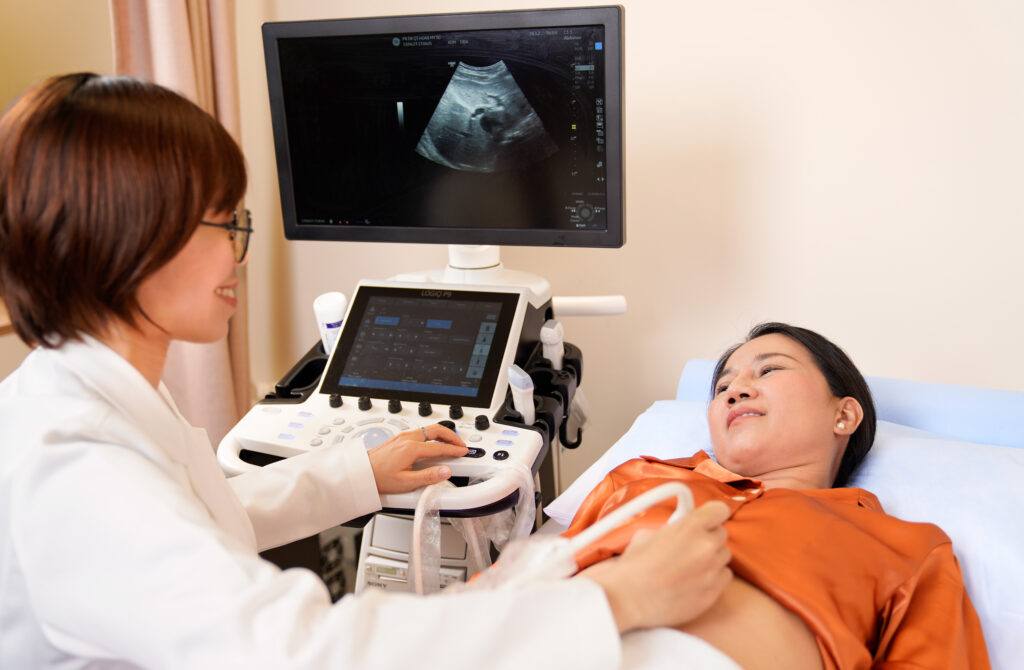Cervical Cancer (CC) is one of the four most common cancers in women. According to GLOBOCAN 2022, Vietnam records over 4,600 new cases and 2,500 deaths annually. However, regular screening helps with early detection, timely treatment, and prevents cancer progression. Notably, 93% of CC cases can be prevented through vaccination and routine screening. The Hoan My Gold PXL medical center to learn more about comprehensive cervical cancer screening and how it helps protect women’s health optimally.
Cervical Cancer develops in the cervix, the part connecting the uterus and vagina, and is often associated with HPV infection. The disease may not cause clear symptoms but can lead to changes in cervical cells, potentially causing cancer.
Common Symptoms of Cervical Cancer
– Abnormal vaginal bleeding: such as bleeding after intercourse, between menstrual cycles, or post-menopausal bleeding.
– Unusual vaginal discharge: cloudy or foul-smelling discharge, bloody mucus, or prolonged discharge.
– Pain during intercourse, pelvic pain, urinary or bowel disorders, leg swelling, kidney failure, bone pain, weight loss, fatigue, and loss of appetite.
Most early-stage cervical Cancer cases (CIN) may not show clear symptoms until the disease has progressed to an advanced stage. Therefore, sexually active women should undergo regular cervical cancer screenings instead of waiting for symptoms to appear before seeking medical attention.
Who Should Undergo Cervical Cancer Screening?
All women aged 21 and older should be screened for cervical Cancer . However, if you fall under one of the following categories, you may need more frequent screenings:
– Have been sexually active or have regular sexual relations, especially with multiple partners
– Have had abnormal cervical Cancer screening results or a history of HPV infection
– Have a weakened immune system
– Have had multiple pregnancies (>4 times)
– Have been using combined contraceptives for over five years
– Have a history of sexually transmitted infections (HIV, gonorrhea, chlamydia, syphilis, herpes, etc.)
– Have been exposed to diethylstilbestrol (DES) in utero
– Smoke or use stimulants, alcohol, etc.
– Have a family history of cervical Cancer
How often should cervical Cancer screening be done?
The specialist doctor recommended screening frequency is as follows:
– If cytology (Pap test) results are negative, screening should be repeated every 1-2 years.
– If high-risk HPV test results are negative, screening can be repeated every 3 years.
– For women aged 30 and older who receive both negative cytology and HPV test results, screening should be done every 3-5 years. Pap smears should be performed every 3 years, and HPV testing every 5 years.
What tests are included in cervical Cancer screening?
– Cytology (Pap test)
– HPV testing
– Cervical examination (VIA-VILI)
According to global guidelines and updated recommendations from the Vietnamese Ministry of Health, the following screening methods are applied based on age groups:
- Ages 21-24: Cytology (Pap test) to detect abnormal cells.
- Ages 25-29: Cytology (Pap test) or HPV testing (preferred).
- Ages 30 and older: Cytology (Pap test) and/or high-risk HPV testing. Experts recommend using both methods.
What to do if screening results are abnormal?
Clinical examinations are essential for doctors to identify visible cervical lesions. If any suspicious lesions are observed or if abnormal Pap smear or high-risk HPV results are found, further tests such as colposcopy, biopsy of suspicious tissue, and histopathological testing may be required to confirm the presence of cancerous cells.
If diagnosed with cervical Cancer , immediate treatment is essential to eliminate cancerous cells and ensure patient safety through specialized monitoring and treatment.
How does cervical Cancer affect health?
Cervical Cancer severely impacts women’s health, manifesting through symptoms like lower abdominal pain, recurrent vaginal bleeding, and in some cases, infertility due to damage to reproductive organs. In advanced cases, radical surgery may be needed, such as the removal of the uterus or ovaries. Cancer spreads to other organs, like the ureters, and can lead to kidney failure. Metastasis complicates treatment and poses a life-threatening risk.
How to prevent cervical Cancer ?
– Reduce the risk of HPV infection by practicing safe, healthy sexual habits and preventing sexually transmitted diseases.
– Get vaccinated against HPV for both men and women, ideally between the ages of 9 and 45 (as recommended by the Ministry of Health)
– Regular gynecological exams, early detection, and treatment of precancerous conditions are the most effective ways to prevent cervical Cancer .

Get the HPV vaccine to proactively prevent cervical Cancer
Common Questions
- Is cervical Cancer screening painful?
The screening process is simple. During a gynecological exam, the cervix is examined, and samples are gently taken without causing discomfort. Most women experience no noticeable difference during the procedure. - How long does it take to get cervical Cancer screening results?
Results are typically available within 1-2 days, allowing you to determine whether any cervical abnormalities are present.
Routine gynecological check ups include:
– Direct cervical examination to detect any risks.
– Transvaginal ultrasound to check the uterus and surrounding structures.
– HPV and Pap smear tests to detect abnormal cervical cells.
– Cervical biopsies in cases of abnormal results, with samples tested for detailed analysis.

Regular health check-ups, especially gynecological exams, help with early detection and prevention of cervical Cancer .
Doctors will explain test results, clarify their significance, and provide guidance on health care and treatment plans if necessary.
We hope this article helps you understand the importance of cervical Cancer screening.
Don’t wait to schedule your screening today to protect your health and your family’s well-being. For more information or to schedule an appointment at Hoan My Gold PXL Medical Center, please contact our hotline at 0901 840 678 for assistance.
| Hoan My Gold PXL Address: 245 Phan Xich Long, Ward 2, Phu Nhuan District, Ho Chi Minh City Phone: (028) 3990 3995 | 0901 840 678 Website: https://hoanmy.com/hoanmy-gold/ Fanpage: https://www.facebook.com/HoanMyGoldPXL Zalo OA: https://zalo.me/hoanmygold |
